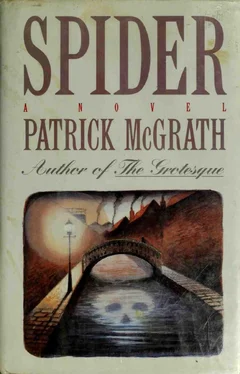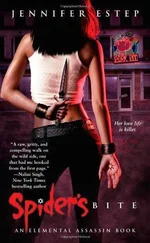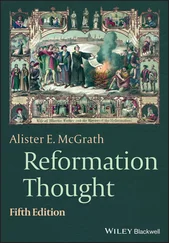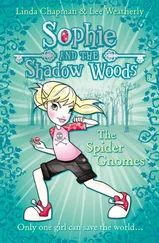I was not strong. I had been on hard bench for a week, I had been thoroughly humiliated, I had nothing I could call my own, no shoelaces, no belt, not even a sock down my trousers. I was in no condition to hold off this cold-eyed creature, this copy of my father—this Cleg-Jebb!—or whatever he was. Silence was my only weapon, the retreat of the Spider into the back parts, down some hole, and this I attempted as the voice rose and fell, boomed and hissed, and “Jebb” shrank away, became tiny, and vast distances opened up in that green-walled bleach-stinking room. But after a moment or two—panic. Long years in Block F, long years being my own man in the vegetable gardens—something had atrophied, and struggle as I might I could not escape the tiny booming figure on the far side of the vast table. It grew dark in the room, the familiar nightmare was upon me, and I was stiff and heavy and pinned, squirming, in the front of my brain, unable to escape the boom and hiss, the eyes, the hands, of this Cleg-Jebb creature across the table. “A cry for help,” he boomed, “sheer panic,” he boomed, “the necessity of facing up,” he hissed, as I squirmed, not the Spider anymore, he was the Spider and I the fly! “Escape responsibility for the accident,” he hissed, “you killed your mother,” he boomed, and I rose wildly to my feet and pointed a trembling finger at him. “You did!” I shouted. “Not me, you!”
The door opening—attendants—smartly down to a safe room and only then, only then did the Spider at last regain the old nimbleness, and down a hole he scuttled and left me rocking back and forth in the corner.
Three more months I spent in Ganderhill, one on hard bench, two back in Block F. There were more interviews with the superintendent, in the course of which he reconstructed my “history.” Then, one cool and misty morning at the beginning of October, he discharged me. See me standing in front of the main gates, under the clock, in a shabby gray suit, and clutching a cardboard suitcase with very little in it; see me turn my head from side to side, imagine my dismay. In my pocket three pound notes, some coppers, and a scrap of paper with Mrs. Wilkinson’s address written on it.
Cleg-jebb had reconstructed my history, but he had reconstructed it wrong wrong wrong, it was bad history. If he knew anything of my father’s plan to send me to Canada he did not indicate it; if he understood my terror at the prospect, if in other words he’d learned the truth about what really happened to my mother—he didn’t indicate this either, It was not hard to imagine what would come next: I’d be lured down the allotments some foggy night, and there, fortified by drink and Hilda, my father would batter me senseless with a gardening tool. He would dig another hole (again displaying that weirdly incongruous solicitude for his potato plants) and then, still under the approving gaze of Hilda, he’d dump me in and cover me up, and without the benefit of even a winding sheet I would soon become a meal for the maggots, the beetles, the flesh-worms, leaving nothing behind me but a heap of long bones, detached and uncoupled and growing more so with every shift of the earth until my brittle frame lost what little coherence and integrity it may once tenuously have possessed in life and was scattered widely in London soil! Then, down at the Dog and Beggar, when the men said, “Where’s that boy of yours, Horace?” or, “Where’s young Dennis?” my father would say, with his twitchy little smile, perhaps wiping the beer froth off his lip: “He’s joined his mother in Canada”—and Hilda would be unable to suppress a hoarse belch of unlovely laughter, and that would be my epitaph.
I sat in my bedroom and heard them murmuring in the kitchen below. Then the scrape of chair legs, Hilda came upstairs briefly, and a few minutes later they left by the back door. I came downstairs and went out after them. I saw them go down the alley, arm in arm, and turn right at the end, off to the Rochester. Back upstairs then, where I took out from under my bed a stolen ball of brown string. I cut a length and tied one end to the leg of my bed. The other end I let out through the window, and it landed in a tangled coil in the yard outside the back door. Then downstairs again, and I brought the string in through the kitchen window (opened half an inch) and tied it to one of the knobs on the gas stove. Back upstairs, and sitting by my open window I reeled in the string till it was taut between my fingers. At this point I began gently to tug it; you can guess my purpose.
I was upstairs and downstairs for the next half hour, adjusting the string, trying to make it work. The string would tighten but the knob on the gas stove wouldn’t turn, and if I pulled harder it frayed where it rubbed against the bottom of the window. I began to think of some sort of mechanism that would make it run smoothly, some sort of spool mounted on a spindle or bobbin, but how to attach such a thing inconspicuously to the kitchen window? Then I heard the ring of hobnails in the alley, and raised voices, so I untied the string from the knob, ran upstairs and hauled in my line. Into the yard they came, Horace and Hilda and Harold and Glad, arm in arm and much the worse for drink—Hilda roaring with laughter at her own unsteadiness as she broke free of my father (who was the soberer of the two) and went crashing into the outhouse, where I heard her shouting and banging against the door, trying to light the candle. The others came in and the kitchen light was turned on, then Hilda emerged, still pulling her skirt down, and even before she reached the back door she was loudly expressing her astonishment that she should live with a plumber unable to fix his own toilet. It was a proper disgrace (she didn’t mind telling us) and by this time Gladys was shrieking in the kitchen, and then I heard Hilda say: “Come on, Glad, ’ave something, it’ll do you good.” I closed my door and returned to the window, and tried to block out their noise. When at last Harold and Glad went off I listened carefully by my door: Hilda came up first, my father close behind her; he would not pass out in his chair by the stove tonight.
The days that followed were filled with strangeness and terror. I couldn’t stay in the house, and when I got outside my steps would seem always to lead me, and against my conscious will, down to the allotments, down to my father’s vegetable garden—despite the fact that I knew he intended to kill me there. On very cold days I broke into the shed, where I lit candles and wrapped myself in potato sacks for warmth. Once, at dusk, I caught a glimpse of my mother by the remains of the compost heap; but when I ran over she disappeared. Another time I saw from the railway bridge that the shed was on fire, a furious, glorious blaze against the stillness and gloom of the afternoon; but the closer I approached the dimmer it became, and by the time I reached the gate the shed was as it always was. Frequently I lay on the frosty soil in order to feel my mother reaching up to me; often I was disappointed, but several times she called me to join her: this tore me sorely, the love and terror rising in my heart in equal measure, with equal passion, so it felt.
At other times I went down the cellar and sat in the corner smelling the coal and watching the black germs dance in the few shafts of daylight that penetrated the hatches in the pavement above. It was cold down there, down in the hold, so I’d cloak my head and shoulders in a piece of dirty sacking like a monk’s cowl and pull my knees up to my chest and wrap my arms around them; I’d shiver and blow cold breath at the shafts of light and see the little germs, the imps, go spinning and swirling wildly round and round, and this made me laugh. One afternoon I sat very still and very quiet and a rat came creeping out and scurried along the wall in short runs, pausing every few feet to twitch its snout. After that I took the cheese out of the traps and scattered it in little pieces across the floor; then I could watch several of them at once. I loved their tails, how long and plump and pale they were, and furred with a down of light bristle as they twitched about behind them like wormy ropes on the deck of a ship. Hilda heard me laughing down there once and the door opened, light spilled in from above. “What you doing down there?” she cried. Sitting in my corner, in my cowl, in the shadows, I said nothing; she came down a little way in that queer sideways manner she had of descending stairs and then she saw the rats. A cry of horror, back up she went, and the door slammed shut behind her! More laughter from the shadows. When my father came home from work she had him go down and set the traps. The next day there were two dead rats, I put them in my pocket, I reset the traps myself, I liked them just as well dead as alive. Once when I was down there in the corner I heard a voice say: “Spider!” It wasn’t my mother’s voice, it was a cracked and growly voice, like an old woman’s voice, and I realized it was the night-hag who lived in my wall. I didn’t go down the cellar after that.
Читать дальше












